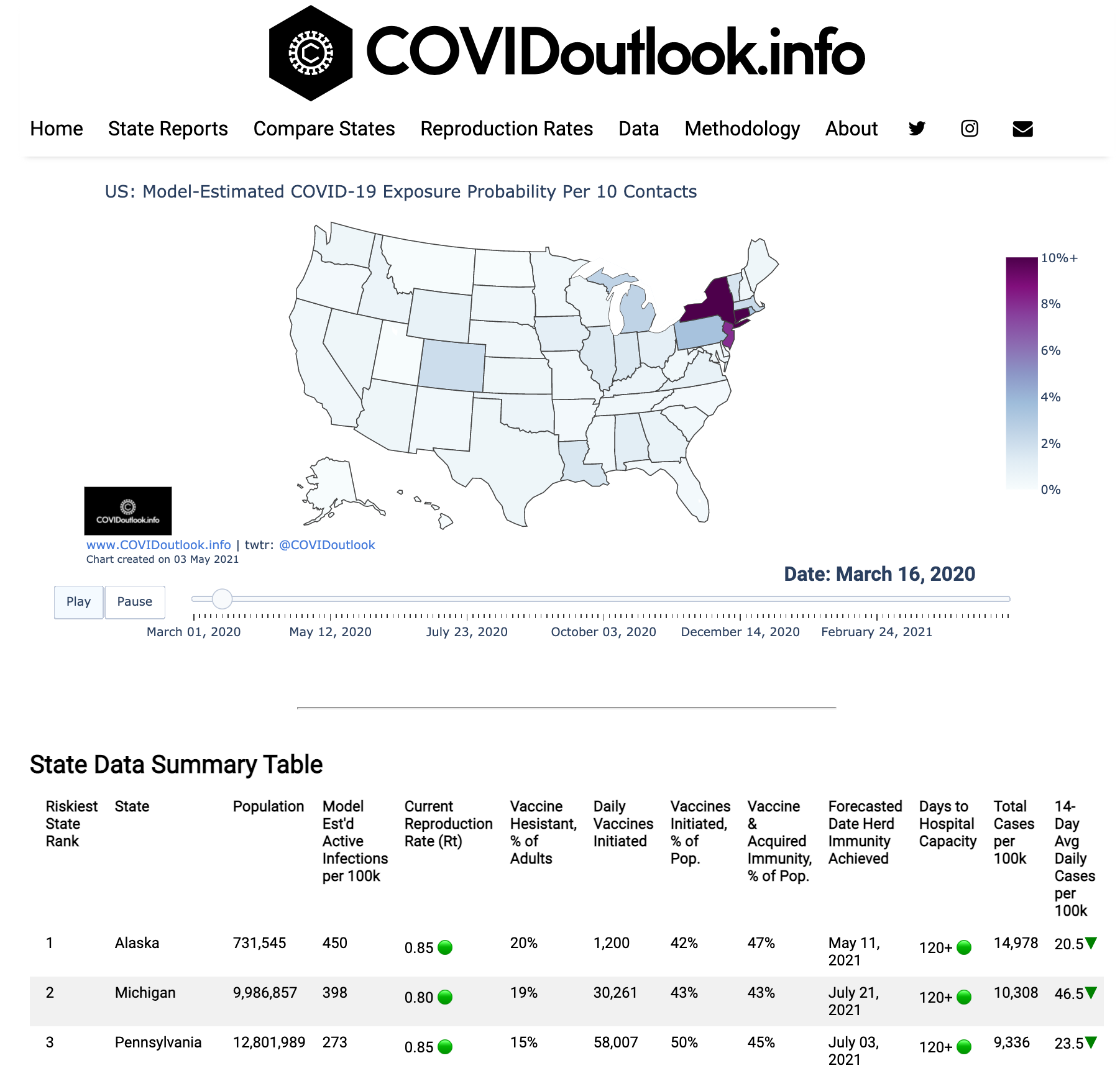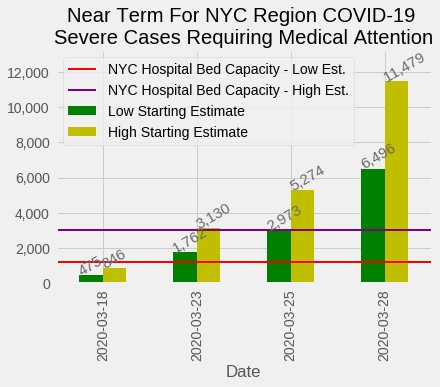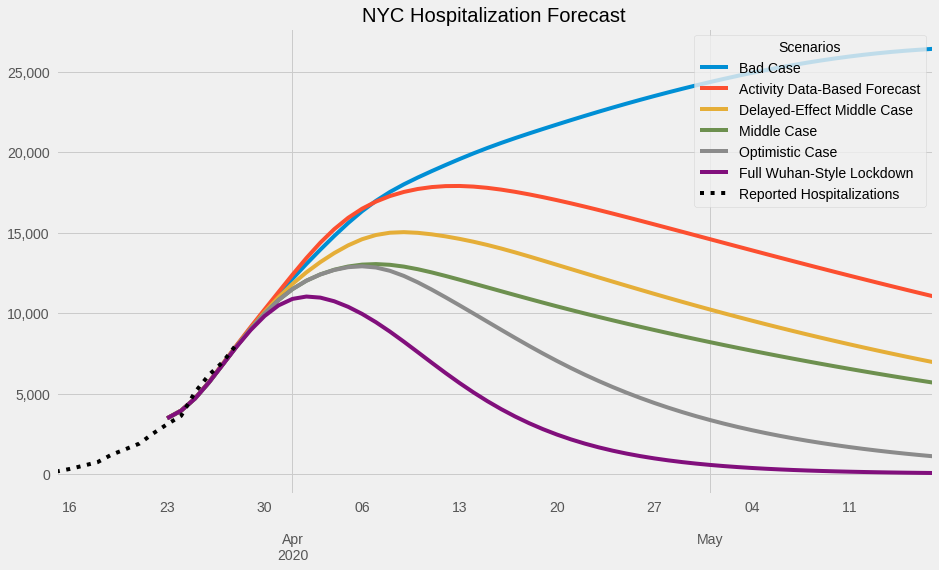COVID-19 Forecasts
 Launched in Summer 2020, COVIDoutlook.info is a volunteer-run website that provides independent data-driven analyses and forecasts about the COVID-19 crisis in the United States for policymakers and individuals. We hope our work can help people make the best decisions for themselves, their families, and their communities during this complicated time of heightened risk.
Launched in Summer 2020, COVIDoutlook.info is a volunteer-run website that provides independent data-driven analyses and forecasts about the COVID-19 crisis in the United States for policymakers and individuals. We hope our work can help people make the best decisions for themselves, their families, and their communities during this complicated time of heightened risk.Using COVID-19 Case Data Alone Will Fool You
26 April 2020

Originally posted on medium.com Recently, several prominent analyses have relied on reported cases of COVID-19 alone to draw important conclusions. One major example is that of Kevin Systrom’s (of Instagram fame) valiant effort to estimate the most important metric of this ongoing epidemic, the reproduction factor.
NYC should brace for impact and shut down now
19 March 2020

Originally posted on medium.com Five days ago I wrote this medium post (COVID-19: New York Will Be The Next Italy, But Doesn’t Have to Be). In it, I forecast that NYC’s hospitals would be at capacity as early as March 30. Unfortunately, I was wrong. New numbers suggest that NYC’s hospitals will reach capacity of approx. 3,000 cases by March 24. (This error was from a lower than anticipated case detection rate.) While there is now nothing we can do to prevent reaching capacity short of immediately adding beds, we can prevent additional deaths and hospitalizations by fully shutting down NYC except for absolutely essential services, like Italy’s current restrictions. Here’s the math behind this new projection.
New York Will Be The Next Italy
14 March 2020

Originally posted on medium.com Analysis strongly suggests that the NYC metro area has 5–10 days to quarantine the city or face dramatically overwhelmed hospitals, extremely high death rates, and a ruined economy. The outlook for NYC and COVID-19 is bleak. The policy response is far too slow and too weak to meet the needs of the moment. This note started as a twitter post on Wednesday March 11. I’ve attached updated charts with two additional days of data to this note.Tl;dr:
No Good Options
11 March 2020

Originally posted on medium.com Reported cases of COVID-19 in the US dramatically understate the current number of infected Americans. The current US mortality rate is likely much lower than reported (~0.4%). Asymptomatic and mild cases are hard to detect and make this disease incredibly difficult to contain. Without strong government intervention to slow the spread, the disease could spread to millions of Americans in very little time. This would overwhelm hospitals and increase the mortality rate of the disease. Federal, state, and local governments will be forced to take unprecedented steps to slow the spread of the virus, including quarantines, school and business closures, and domestic travel restrictions. While there will be significant economic fallout from these measures, the damage to the country and economy would be worse without them. Most of the economic costs of the government response will fall to lower and middle income wage workers. Policies, such as enhanced unemployment insurance, should be adopted quickly to compensate these workers for the sacrifices made in the best interest of the country. Policymakers should also implement smart economic policies that will slow the spread of the virus in order to protect the public. Requiring paid sick leave and guaranteed healthcare will slow the spread and economic consequences of COVID-19.Tl;dr:

